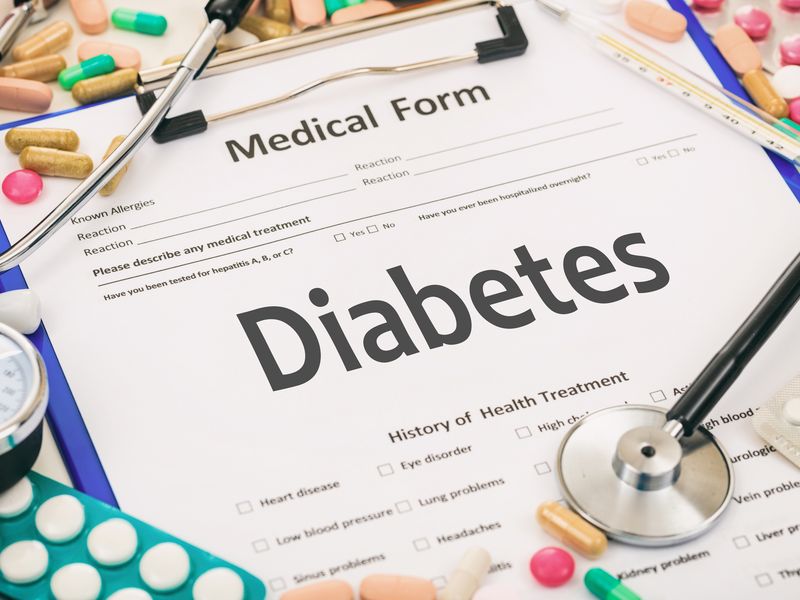Diabetic patients residing in England who rely on insulin or medication to manage their diabetes are entitled to receive free prescriptions. However, it’s essential for individuals under the age of 60 to obtain a medical exemption certificate before claiming their free prescriptions. These free prescriptions cover all prescribed items, even those unrelated to diabetes.
In contrast, prescriptions are universally free in Scotland, Wales, and Northern Ireland.
Determining Eligibility for Free NHS Prescriptions
For diabetic patients in England who don’t use insulin or medication to manage their condition, they may still qualify for free NHS prescriptions if they meet specific criteria. These criteria might apply if an individual’s circumstances have recently changed.
The NHS online eligibility checker can help you determine your entitlement to free NHS prescriptions.
Navigating Dental Treatment and Additional NHS Costs
Regardless of how diabetes is managed, patients may be eligible for free NHS dental treatment and assistance with other NHS expenses if they satisfy certain criteria. The NHS online eligibility checker can help you identify whether you need to pay for these services. If you don’t qualify for free treatment, the checker will provide alternative options to support with NHS health costs, such as the NHS Low Income Scheme or Prescription Prepayment Certificates.
By confirming your eligibility, you can prevent a penalty charge notice and access the assistance you deserve.
The Importance of a Certificate for Free Prescriptions
It is a legal requirement for diabetic patients to possess a certificate to claim free prescriptions. Although a medical exemption certificate has always been necessary, the Government introduced a central enforcement system in September 2014. Claiming a free prescription without a medical exemption certificate may result in a penalty charge notice and require you to cover the prescription cost.
Steps to Take If You Lack a Certificate
If you’re without a medical exemption certificate but wish to claim free prescriptions, you must obtain an application form for the certificate from your doctor’s surgery.
This application form is called FP92A. You will need to complete the form, after which your doctor will sign and submit it.
In the absence of a certificate, or if your application is still being processed, you must pay for your prescription. Remember to request an FP57 receipt and refund claim form from your pharmacist, as this allows you to claim a refund once your certificate is issued.
Receiving and Renewing a Medical Exemption Certificate
Once issued, a medical exemption certificate is valid for five years. Upon registering for a certificate, you should expect to receive a reminder letter one month before its expiration.
More information about medical exemption certificates can be found on the NHS Business Services website.
Dealing with Penalty Charge Notices from the NHS BSA
The NHS Business Services Authority (NHS BSA) is responsible for verifying whether individuals claiming free prescriptions are entitled to do so. If you claim a free prescription without a medical exemption certificate, they may issue a penalty charge notice, which will include the prescription cost and an additional penalty fee.
Legally, you are required to pay the cost of the prescription if you claim a free prescription without a medical exemption certificate. However, if you apply for a medical exemption certificate within 60 days of receiving the fine, the penalty charge will be waived.
Addressing Penalty Charges Issued Before March 17, 2015
The NHS BSA modified their system on March 17, 2015, allowing individuals to apply for a medical exemption certificate and have their penalty charge waived. Prior to this date, people were not automatically given the chance to contest their penalty charge.
If you received a penalty charge before March 17, the NHS BSA will send a letter to cancel your outstanding penalty charge, provided you already have a medical exemption certificate or apply for one within 60 days.
If you have already paid a penalty charge, it will be refunded to you, as long as you have a medical exemption certificate or obtain one within 60 days of receiving the letter.
Conclusion
As a diabetic patient in England, understanding your eligibility for free prescriptions, dental treatments, and other NHS costs is crucial. By obtaining a medical exemption certificate and regularly checking your eligibility, you can avoid penalty charges and access the financial support you’re entitled to. Remember to consult your doctor and use the NHS online eligibility checker to stay informed about your rights and options.
